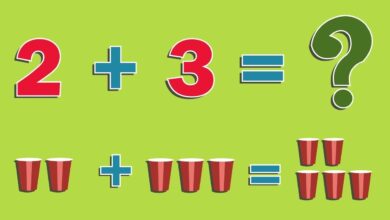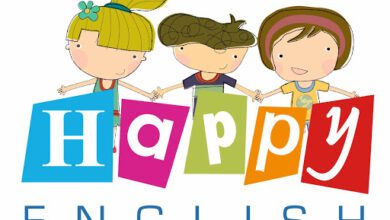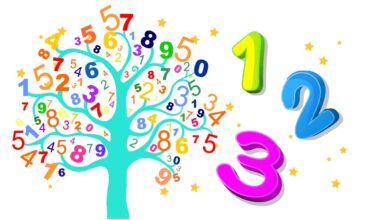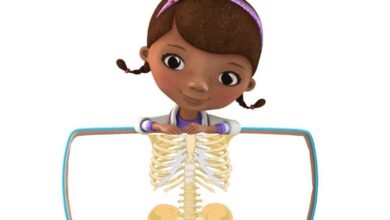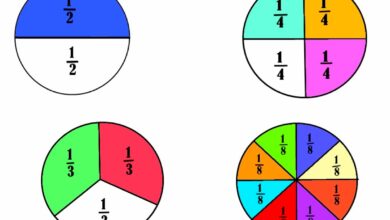شرح المحادثة الديالوج DIALOGUES بالتفصيل
شرح المحادثة الديالوج DIALOGUES بالتفصيل

هنقدم شرح المحادثة الديالوج DIALOGUES بالتفصيل وشرح السؤال فى المحادثة والمواقف فى المحادثة الرفض والقبول والنصيحة وكل شىء
شرح المحادثة الديالوج DIALOGUES بالتفصيل
ينبغي مراعاة ما يلي عند تكملة أي حوار :
- – اقرأ الحوار بدقه لتعرف الموضوع الذي يدور حوله والزمن المستخدم.
- – اقرأ الإجابات جيداً لتكون لها أسئلة والعكس.
- – الأفضل أن تكون إجابتك مختصرة.
- – اقرأ الحوار كله مرة أخرى لتتأكد من أن إجابتك مناسبة.
How to ask a question يتم تكوين السؤال على النحو التالي:
علامة استفهام + تكمله + فعل أساسي + فاعل + فعل مساعد + ( آداة استفهام )
? HOW TO DEAL WITH A DIALOGUE
المحادثة ماهى الا سؤال عاوز اجابة او العكس
(1)- ( سؤال وجواب)
A :Where did you go yesterday ?
B :…………………………… .
(2)- (جملة خبرية وإجابتها جملة خبرية)
A :I saw you running in the street yesterday .
B :………………………………………… .
(3)- (سؤال وأجابته عبارة)
A :Where does he spend his week end ?
B :…………………………………… .
(4)- (سؤال أو جملة خبرية يرد عليها بجملة خبرية أو بصيغة تعجب)
? A: He was injured in an accident
B: What a pity ! He will be a cripple .
(5)- كل سؤال يمكن الإجابة علية بجملة تامة أو بجملة مختصرة أو بعبارة وهذا يترك لتذوقك اللغوي .
A: How do you come to school ?
B: I come by bus. or B: By bus.
(6)- كل جملة يمكن أن يسال عنها بسؤال كامل أو بسؤال مختصر
A : Ali went to hospital to have an operation.
B : Why did Ali go to hospital?
؟ B : Why did he go there
(7)- كل سؤال يبدأ بــ
Verb to be Verb to have Verb to do
الإجابة علية بــ Yes, No,
(8)- أي سؤال يبدأ بأداة استفهام لا يحتاج إلى “Yes, or No,” بل يحتاج إجابة حسب السؤال فمثلا
Where does she live ? ——––She lives in Alex.
(9)- الجملة الخبرية قد يتبعها(Question Tag) (أليس كذلك)
He is a doctor; isn’t he?
المنفى بيتحول لإثبات والعكس
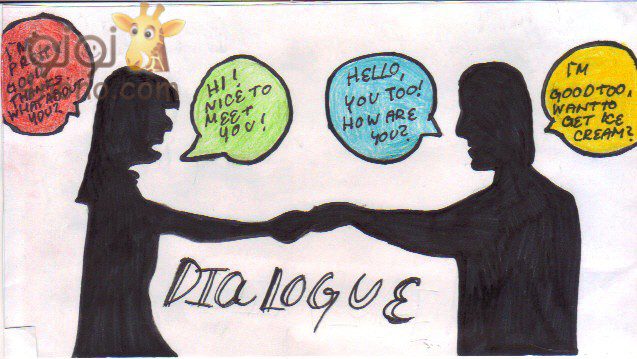
والآن يلا نعرف ازاى نكون السؤال How to make a question
؟ Question word+helping verb+s+main verb
تكملة إن وجدت الفعل الأصلي الفاعل الفعل المساعد أداة الاستفهام? إن وجدت تكملة مثل
Tomorrow
Yesterday
At school
etc……… آي التصريف الأول للفعل إذا كان الفعل المساعد v.to do
-p.p إذا كان v.to have
-v+_ing
إذا كان
v.to be I
He
She
It
We
You
They
أو اسم إذا لم يكن في الجملة فنأتي به من فعل الجملة الأصلي
Ex: They go…..
(do )
Ex: He goes….
(does )
Ex : He went….
(did) Where when
Why
What
How
How many
How much
How long
How often
How old
(1) سؤال يبدأ بأداة استفهام
– ويتكون هذا السؤال من ستة أجزاء :يلا صحصحوا كدة!!-
A : ……………………………….………………….?
B : I went to the Stadium yesterday.
A :………………………………….………………..?
B : I always wake up early in the morning.
A : ………………………………………….……….?
B : She usually helps her mother in the kitchen .
A : ……………………………………….?
B : They are learning to make a question.
A : ………………………………………………….?
شرح المحادثة
B : I have been to United States .
A : What were you doing yesterday ?
B : …………………………………………….. .
A : When did you travel abroad ?
B : ………………………………………………. .
A : How many friends do you have ?
B : ………………………………………………. .
A : What are you doing ?
B : ………………………………………………. .
(2) سؤال يبدأ بفعل مساعد
– الإجابة على هذا السؤال بــ
Yes No Sure Of course Well I think Perhaps In my opinion
? تكملة إن وجدت الفعل الأصلي الفاعل الفعل المساعد
– يتكون هذا السؤال من خمسة أجزاء :-
A : …………………………………………….. ?
B : Yes, I am studying English.
A : …………………………………………….. ?
B : No, she wasn’t going to work.
* إذا كان الفعل فى الجملة فى زمن المضارع المستمر أو الماضي المستمر يقدم الفعل المساعد
(verb to be) على الفاعل (لعبة المقص) واحد اتنين تبقى اتنين واحد!!!!!!!!!!!!!
Yes, he has explained the problem with his parents.
A : ………………………………………………. ?
B : Yes, he has. or No, he has not.
Yes, he had explained the matter.
A : ……………………………………………… ?
B : Yes, he had. or No, he had not.
* إذا كان الفعل في الجملة في زمن المضارع التام أو الماضي التام يقدم الفعل المساعد (verb to have) على الفاعل (المقص)
نصائح مهمة
1- لكي تكون المحادثة صحيحة من ناحية التركيب لابد من استخدام الصيغة المختصرة .
– He didn’t study. – I’ve a lot of time.
-mustn’t you? -Ali’s played chess.
2-لابد من تجنب إعطاء إجابات كاملة وهذا معناه أن الإجابة في المحادثة لابد وان تكون مختصرة .
* Did Mr. Gawad explain this lesson before?
-No, he didn’t explain this lesson before. (wrong answer)
-No, he didn’t .(right answer)
* Why did Mona succeed?
-She succeeded because she studied hard. (wrong answer)
-Because she studied hard. (right answer)
3- هذه الكلمات نعوض عنها بالضمير they
everyone everybody someone somebody
4- هناك أسئلة مختصرة في المحادثة تشذ عن القاعدة العامة لتكوين السؤال ولها معاني جميلة وعليك حفظها
And you? Single or double? With or without a bath?
Where to? Single or married? What a nice dress!
Where from? Single or return? What else?
Why not? First or second class? What about you?

(اشهر الأسئلة)
(1) At a restaurant (2) At a hospital or a doctor’s
*Can I have your order, sir? *What’s the matter with you?
*What’s your favourite dish? *What do you complain of?
*What about the dessert? *How long have you been smoking?
(3) At a shop (4) At a hotel
*Can I help you? * I’d like to book a room please.
*Yes, I’d like a pair of shoes. *How long will you stay here?
*How much does it cost? *Have you enjoyed your stay here?
*What’s the colour\size?
(5) At a railway station (6) Meeting a tourist
*I’d like a ticket to Alex please. *Where do you come from?
*Which platform does it go from? *What places have you been to?
*How long does it take to go there? *How long will you stay here?
*When will it arrive? *Is it your first visit to Egypt?
ملاحظات على السؤال ب (هل)
ويستخدم مع الاجابة التى تبدأ بـ :-
( Yes – No – of course بالطبع – certainly بالتاكيد – sure بالتاكيد )
A: ……………………………………….?
B: Yes, I speak English
هنا تحذف yes ونقوم بعمل استفهام على الجملة التى بعدها :
Do you speak English ?
اذن يكون الاستفهام على الجملة التى بعد ( yes / no) حسب زمن تلك الجملة وذلك كما يلى :
1- لو وجدت ( مصدر + s ) نسأل بـ Does ويعود الفعل للمصدر:
هى تنام مبكرا Yes , She sleeps early
Does she sleep early ? هل هى تنام مبكرا
2- لو وجدت ( مصدر بدون s ) نسأل بـ Do:
هم يلعبون تنسYes ,they play tennis
Do they sleep early ? هل هم يلعبون تنس
3- لو وجدت تصريف ثان ( ماض بسيط ) نسأل بـ Did ويعود الفعل الى المصدر
sure ,they played tennis
Did they play tennis ?
Yes ,I went to the zoo
Did you go to the zoo ?
4- لو وجدت فعل ناقص او مساعد نقدم هذا الفعل على الفاعل :
am is are – was were – have has had – can could – will would may might must should
Yes ,he will goنعم هو سيذهب
Will he go ?هل سيذهب
Yes ,he is reading a story هو يقرأ قصة
Is he reading a story? هل هو يقرأ قصة
لاحظ ان I تحول الى You فى الاجابة
استطيع ان اسبح فى النهر Of course,Ican swim in the river
Can you swim in the river ? هل تستطيع ان تسبح
Yes, She has gone to Cairoنعم هى ذهبت للقاهرة
Has she gone to Cairo ? هل هى ذهبت للقاهرة
ولا حظ ايضا :
I am انا اكون = Are you هل انت تكون
I was انا كنت = were you هل كنت
Yes ,I am reading a book نعم انا اقرأ كتاب
Are you reading a book ? هل انت تقرأ كتاب
Yes ,I was late yesterday نعم كنت متأخرا بالامس
were you late yesterday ? هل كنت متأخرا بالامس
More Examples
امثلة على الجمل المنفية
هنا يتم حذف no وكذلك not
No , she doesn’t run fast .
( Does she run fast ? )
No, I don’t smoke
( Do you smoke )
No, we didn’t go to Alex
( Did you go to Alex ?)
No, I am not happy
( are you happy ?)
شرح المحادثة
No, I have not finished
( Have you finished ?)
No , I won’t go to Cairo ( won’t = will not )
( Will you go to Cairo ?)
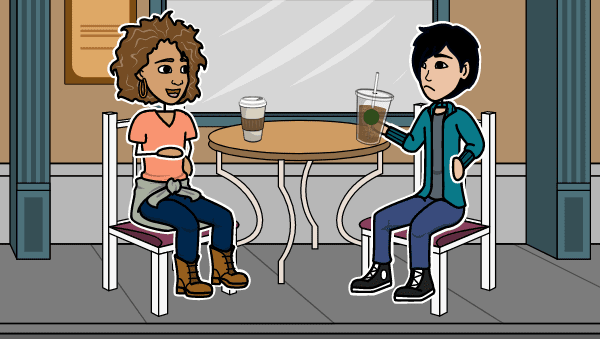
ثانيا استخدام ادوات الاستفهام
ان لم تبدأ الجملة بـ yes او No لابد ان نستخدم اداة استفهام:
Ex : I went to the zoo ذهبت الى حديقة الحيوان
Where did you go ? اين ذهبت
مراجعة تانى على أدوات الاستفهام
Who
من الفاعل والمفعول العاقل
How long
ما طول المدة
Whom
من ( للمفعول العاقل)
How long
كم طول ( المسافة)
Whose
مللك من ( للملكية )
How often
كم مره
What
ما-ماذا
How deep =what depth ما عمق
Where
أين ( للمكان)
How tall
ما طول ( الشخص)
When
متي ( للزمان)
How high= what height
كم الارتفاع
Why
لماذا (للسبب)
How old = what age
كم العمر
Which
أي ( للتخيير)
How wide = what width
ما عرض
How
كيف
How heavy =what weight
ما وزن
How many
كم العدد
+
How much
كم الكميه \ الثمن
How far
ما بعد (المسافة)

كيف استخدم ادوات الاستفهام
He goes to school at 7 O’clock ? ( When )
1- حدد الجزء الذى تريد السؤال عنه فى الجملة – وأحذفه
2- ضع الاداة المناسبة أول الجملة
When…………
3- اعمل استفهام ( كما سبق شرحه ) على الجزء المتبقى من الجملة
When does he go to school ?
I drink milk in the morning ( What )
What do you drink in the morning ?
I went to Alex last Summer ( Where)
Where did you go last Summer ?
( I will buy a new car tomorrow ( What
What will you buy tomorrow ?
Who من
تسأل who عن الفاعل العاقل ويمكن ان توضع مكان الفاعل مباشرة :
(Mr. Gawad teaches us English ( who
Who teaches you English ?
(Amira got the best marks ( Who
Who got the best marks ?
Why لماذا
Why” ” تستخدم لعمل سؤال على جملة بها :
Because …..لان
(To + مصدر) لكى
I go to school to learn اذهب للمدرسة لكى اتعلم
Why do you go to school ? لماذا تذهب للمدرسة
I went to hospital because I was ill
؟Why did you go to hospital
Whose ملك من
تسأل عن الملكية ولابد ان يأتى بعدها الاسم الممتلك :
Whose + الاسم الممتلك
This is my pen هذا قلمى
Whose pen is this ? قلم من هذا
We bought Ali’s car (Whose ) نحن اشترينا سيارة على
Whose car did you buy ? سيارة من اشتريتم
That book is mine ملكى / yours ملكك / hers ملكها / ours ملكنا / theirs ملكهم
Whose book is that ?
Which اى
We will buy the red car سنشترى السيارة الحمراء
Which car will you buy ?اى سيارة ستشترون
How كيف
1- تسأل How عن المواصلة
by car / by train / by bus / by taxi /by plane/ by boat/ by ship /on foot /by air جوا/ By land برا / By sea بحرا /
I went to school by car
How did you go t school ? كيف ذهبت للمدرسة
I will go to Cairo by plane
How will you go to Cairo ?
2- تسأل How عن الحال :
He works hard / slowly / fast / correctly ……
How does he work ?
My first day at school was OK ?
How was your first day at school ?
How many كم عدد
How many + العدد المراد السؤال عنه (ويكون جمع )
I have eaten three apples.لقد اكلت ثلاث تفاحات
How many apples have you eaten ? كم عدد التفاح الذى اكلت
I bought a book اشتريت كتاب
How many books did you buy ? كم عدد الكتب الذى اشتريت
لاحظ : فى الجملة الاولى كانت الاجابة بـ كلمة a book وهى مفردة ولكن فى السؤال استخدمنا books \( جمع ) لاننى اقول كم عدد الكتب وليس كم عدد الكتاب
How much كم كمية
How much + الكمية المراد السؤال عنها
I bought a lot of rice
How much rice did you buy ?
Howmuch كم الثمن
How much is it ?كم ثمنه
It is for LE 50
How much are they ? كم ثمنهم
They are for LE 150
How much does it cost ? كم يكلف It costs LE 150
How often كم مرة
3- تسأل عن عدد المرات :
once a week مرة فى الاسبوع
Twice a year مرتين فى العام
Three times a month 3 مرات فى الشهر
We visit our uncle once a week
How often do you visit your uncle ?
4- ويمكن ان تسأل بـ how often على كلمات المضارع البسيط :
Usually عادة – sometimes احيانا – always دائما – often غالبا – never ابدا – every – on Fridays
They usually go to the Cinema
How often do they go to the cinema ?
We never go to the zoo
How often do you go to the zoo ?
How long كم المدة / منذ متى
ونسأل بها عن ) since / for منذ (
She has lived in Cairo for three years
How long has she lived in Cairo ?
We have studied English since 2000\
How long have you studied English ?
He will stay here for a week
How long will he stay here ?
5- كما تستخدم how long بمعنى كم طول ( المسافة ):
The road is 50 kilometers long
How long is the road ?
How deep =what depth ما عمق
The hole is 5 metres deep
How deep is the hole ?
How high= what height ما ارتفاع
The wall was 5 metres high
How high was the wall = What height was the wall ?
How old = what age
He is 13 years old
How old is he ?
What age is he ?
This car comes back to the year 1800
How old is this car ?
How old are you ? ( What )
How wide = what width ما عرض
The street is 10 metres wide
How wide is the street ?
What width is the street ?
How heavy = What weight ما وزن
The box is 50 kilograms heavy
How heavy is the box ?
What weight is the box ?
The load الحمولة weighs تزن 150 kg
How heavy does the load weigh ?كم تزن الحمولة
How fast ما سرعة
The car runs at 50 km per hour 50 كيلو متر فى الساعة
How fast does the car run ?
How far ما بعد
A camel can walk about 50 kilometres a day
How far can a camel walk ?

أسئلة اخرى بـ How :
How are you ? كيف حالك fine thanks
How do you do ? تشرفنا how do you do ?
How do you feel today ? بما تشعر اليوم I feel better اشعر بتحسن
How come ? كيف حدث ذلك
للسؤال عن الفعل :
( ماذا يفعل فلان )
1- لو وجدت فعل + s :
Ali writes the lesson على يكتب الدرس
What does فاعل do ?
What does Ali do ? ماذا يفعل على
2- لو وجدت مصدر بدون s :
We go to the zoo on Friday نحن نذهب لحديقة الحيوان يوم الجمعة
What do فاعل do ?
What do you do on Friday ? ماذا تفعلون يوم الجمعة
3-لو وجدت تصريف ثان ( ماضى بسيط ) :
I mended the bike yesterday اصلحت الدراجة بالامس
What did فاعل do ?
What did you do yesterday ? ماذا فعلت بالامس
لاحظ اننا حذفنا الفعل والمفعول
4-لو وجدت have – has – had :
She has swept the floor
What has / have / had فاعل done ?
What has she done ? ماذا فعلت
I have read a new book in the library
What have you done in the library ?
They had visited the new valley
What had they done ?
5-لو وجدت am – is – are – was – were + Ving :
I’m reading a book now
What ( be ) فاعل doing ?
امثلة
What are you doing now ? ماذا تفعل الان
He is playing football
What is he doing ?
I was sleeping yesterday evening
What were you doing yesterday evening ?
5-لو وجدت will – would – can – could – : :
What ( will) فاعل do ?
امثلة
I will go to the zoo tomorrow
What will you do tomorrow ? ماذا ستفعل\
he can make chairs and tables at the workshop
what can he do ? ماذا يستطيع ان يفعل
لاحظ أن هناك اسئله مختصره :
What size? ما المقاس
What colour ? ما اللون
Which one ? ايهم
Anything else? أي شيء آخر
What else? ماذا أيضا
Where to ? على فين
Single or married? أعزب أم متزوج
Single or return ? ذهاب ام ذهاب وعودة
شرح المحادثة
Single or double ? مفردة ام مزدوجه ( للغرفة )
What about you? ماذا عنك
What’s wrong with you? مالك …؟
(What’s wrong with ( your leg) ( your car ………? مالها رجلك – سيارتك ……
What caused the accident? ما سبب الحادث
What happened? ماذا حدث
What’s up ? ماذا حدث
جمل عامة
Enjoy your time استمتع بوقتك
I wish you speed recovery أتمنى لك الشفاء العاجل
Good luck in your exams حظ موفق فى الامتحانات
What a beautiful dress ! يا له من فستان جميل
Are you free this evening? هل انت فاضى هذا المساء
When / where shall we meet ? متى – اين سنلتقى
Thank you for the coffee شكرا على القهوة
You are welcome يا اهلا بك
can you get me some water please? ممكن تحضر لى بعض الماء من فضلك
With pleasure بكل سرور
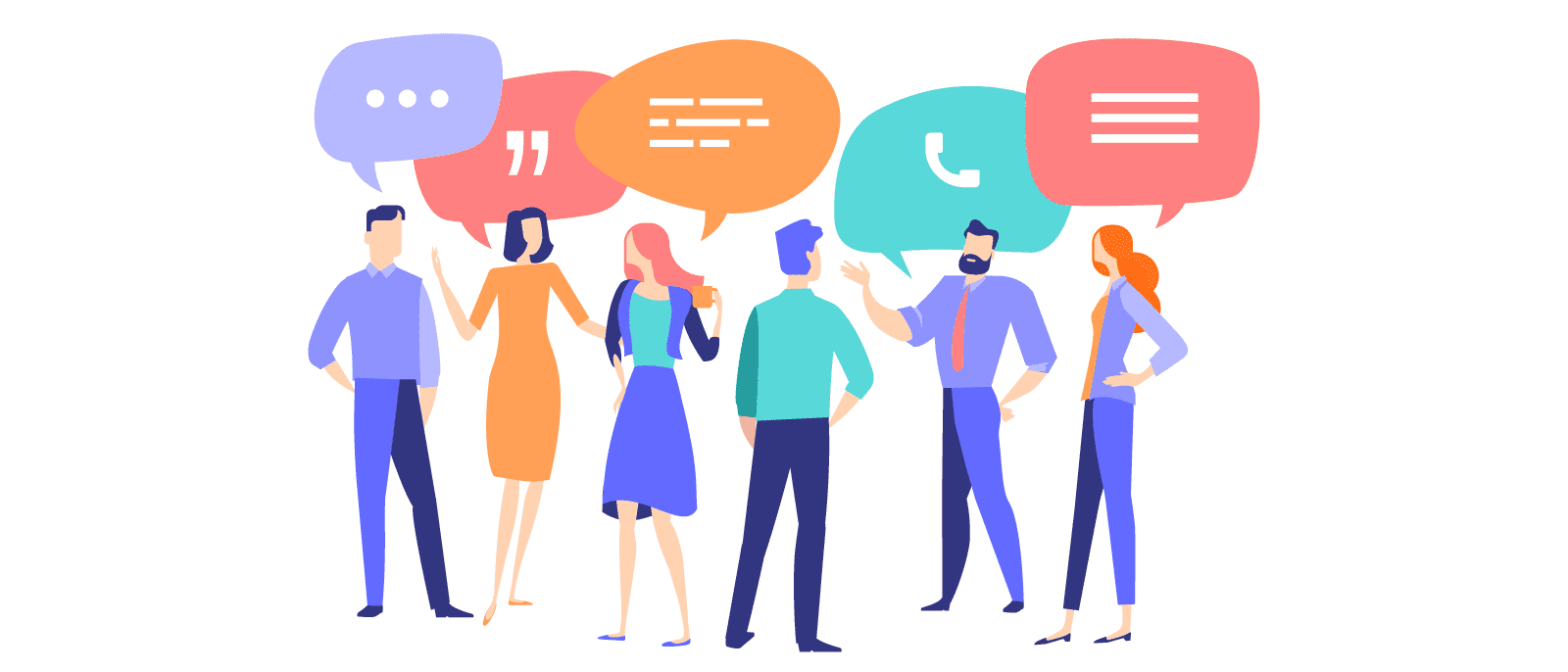
ينقسم الفعل عند السؤال إلي نوعين
1) verb ” to be”1 نوع من الأفعال يقدم علي الفاعل مثل:-
[ am – is – are ] مضارع [ was – were ] ماضي2) verb “to have” + p . p
[ have – has ] مضارع [ had ] ماضي
3) Modal Verbs
[ will – would – shall – should – can – could – may – might – must ]
إليك هذه الأمثلة
1) ؟ Will you travel to London
Yes, I ‘ll travel to London .
2) ؟Are you ready to work in the evening
No, I ‘m not ready to work in the evening.
3) ؟ Have you taken any English courses before
Yes, I have taken some English courses before
2) نوع من الأفعال لا يقدم علي الفاعل مثل:-
ملحوظة :
إذا لم نجد أحد الأفعال السابقة نستخدم الأفعال الآتية :
1) في زمن المضارع المصدر + الفاعل +do\ dose
2) في زمن الماضي المصدر + الفاعل+ did
ملحوظة :
الأفعال السابقة يأتي بعدها مصدر الفعل
1) ؟ Did you arrive yesterday
Yes , I arrived yesterday .
2) Do you have your guarantee certificate?
Yes, I have my guarantee certificate.
كيف نكون سؤال
يتكون السؤال بطريقتين :-
الطريقة الأولي :-
1- بتقديم الفعل علي الفاعل فقط وذلك إذا كان في الإجابة كلمة yes أو no
ملحوظة :- يكون السؤال في هذه الحالة بمعني ” هل ” لأنه لا توجد كلمة هل في اللغة الإنجليزية
1) Can you remember people’s names easily?
No , I can’t remember people’s names easily .
2) Do you go to work by bus ?
شرح المحادثة
No , I don’t go to work by bus .
1) Are you good at remembering numbers?
Yes, I am good at remembering numbers.
4) Did you visit Aswan and Luxor ?
Yes , I visited Aswan and Luxor .
2- الطريقة الثانية :-
يكون السؤال أيضا بتقديم الفعل علي الفاعل + كلمة الاستفهام وذلك إذا لم يكن في الإجابة كلمة yes أو no عند السؤال بكلمة الاستفهام لاحظ الآتي :-
1) نحدد ما نسأل عنه .
2) نختار كلمة الاستفهام .
3) غالباً ما نسأل عنه في نهاية الجملة .
4) عند السؤال بكلمة استفهام تحذف ما تسأل عنه
1) How long have you been studying English ?
I have been studying English for 5 years.
2) What countries did you visit ?
I visited England and France .
translation
Question word
الاستخدام Use
من who للسؤال عن الناس
لماذا why للسؤال عن السبب
ما/ ماذا what للسؤال عن الأشياء
أين where للسؤال عن الأماكن
متى when للسؤال عن الزمن
لمن whose للسؤال عن صاحب الشئ
أي which للتخيير بين الناس و الأشياء
من whom للسؤال عن الناس في حالة المفعول فقط
كيف how للسؤال عن المواصلات والصحة و الكيفية
كم طول المدة how long للسؤال عن طول المدة
كم طول الشئ how long للسؤال عن طول الشئ
كم عدد المرات how often للسؤال عن عدد المرات
كم الثمن how much للسؤال عن ثمن الشئ
كم الكمية how much للسؤال عن كمية الشئ
كم بعد how far للسؤال عن مدي بعد الشئ
شرح المحادثة
كم عمق how deep للسؤال عن عمق الشيء
كم العمر how old للسؤال عن عمر الناس و الأشياء
كم العدد how many للسؤال عن عدد الناس و الأشياء
كم طول how tall للسؤال عن طول الناس والشجر والأبراج
كم ارتفاع how high للسؤال عن ارتفاع الأشياء ( مبني- سيارة)
ما نوع what kind للسؤال عن ارتفاع المباني
ما الوقت what time للسؤال عن الوقت
ما لون what coulour للسؤال عن لون الأشياء
بعض الأسئلة التي تستخدم أحيانا في المحادثات
1- What happened? 1- للسؤال عن شئ حدث
2- What is the weather like? 2- للسؤال عن الطقس
3-When does the …..….. arrive? 3- للسؤال عن ميعاد وصول وسيلة مواصلات
4- How long will you stay? – – للسؤال عن المدة 4
5- What is ….. شخص … Like? 5- للسؤال عن شخصية إنسان
6- What is it for? 6- للسؤال عن الغرض من استخدام شئ
7- What do you do?
What is your job? 7- للسؤال عن الوظيفة
8- Where were you born? 8- للسؤال عن مكان الميلاد
9- What does .. شخص .. look like ? 9- السؤال عن مظهر الإنسان الجسمي
10- When is your birthday? – للسؤال عن تاريخ الميلاد10
11-What is your nationality ? 11- للسؤال عن جنسية شخص
12-How long does it take ? 12- للسؤال عن المدة التي ستغرقها وسيلة المواصلات
13-How much does it cost ? 13- للسؤال عن سعر شئ
14-What is your opinion about …? 14- السؤال عن رأي شخص في ……………….
15-Where do you come from ? 15- للسؤال عن المكان التي أتي منه الشخص
16-Single or double ? 16- عند السؤال عن نوع الغرفة في الفندق
17- Where have you been? 17- أين كنت؟ أين ذهبت؟
18- What would you Like to have? 18- للسؤال عن ماذا يريد شخص أن يأكل
19- How many people are traveling? 19- للسؤال عن عدد المسافرين
20- Where do you live? 20- للسؤال عن عنوان شخص
21- What is wrong with it? 21- للسؤال عن عطل في جهاز
22- How often do you ………? 22- للسؤال عن عدد المرات……………………؟
23- What is wrong with you? مما تشكو للسؤال عن الشخص المريض -23
الســــــــــــــــــــــــؤال الاول
تكوين الســــــــــــؤال :
قبل تكوين السؤال يجب معرفة الافعال المساعدة و ادوات الاستفهام :
الافعـــــــــــــــال المســــــــــاعدة :
Am – is – are – was – were – have – has – will – can – should – may
ادوات الاستـــــــــــــــفهام :
Where اين** When متى** How كيف** What ماذا
How old كم عمر** How much كم كمية/ ثمن ** How manyكم عد** Who من
التحــــــــــــــــــــويلات
I——————– you
We —————–you
I am —————- are you
We are ————- are you
I was ————– were you
We were —————- were you
My————————- your
تكــوين الـســـــــــــؤال
اذا كانت الاجابة تبدأ ب Yes, No ,Sure ,Certainly , All right , Of Course , Not at all و كان في الجملة فعل مساعد ( سبق ذكره ) اتبع القاعدة الاتية :
الفعل المساعد + الفاعل + باقي الجملة ? مع مراعاة التحويلات
@ ……………………………………?
& yes, I will go to school by bus .
( Will you go to school by bus ? )
اما اذا لم يوجد فعل مسا في الجملة فنســــــــــــــــــــتخدم الافعال الاتية :
* do (s) اذا كان الفعل مضارع من غير
* does ( s) اذا كان الفعل مضارع به
* did اذا كان الفعل مــــــــاضي
@……………………………………..?
& Yes, I went to school by bus .
( Did you go to school by bus ? )
اذا لم تبدأ الاجابة بـ yes, no فاننا نستخدم ادوات الاستفهام ( سبق شرحها )
ثم نفس القواعد السابقة:
اداة الاستفهام + الفعل المساعد(كما سبق شرحه) + الفاعل + حذف الاجابة ?
@ ………………………………………..?
& I will go to school by bus .
( How will you go to school ? )& I played football yesterday.
( What did you do yesterday ? )
وهناك اسئلة تفهم من سياق المحادثة مثل :
What colour do you want ? Red
Why did / have you ………?
What size do you want ? 45
What do you think of ……?
What about ………………?
Why don’t you …………….?
Ok, it’s a good idea to go there .
Who will come ?
All our friends .
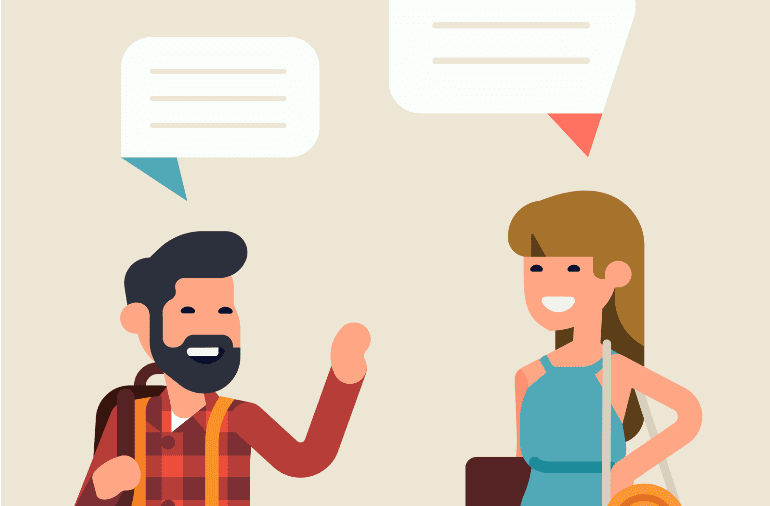
ما الفرق بين السؤال العادي و السؤال المذيل ؟
السؤال المذيل يعرف اذا جاء قبله ( , ) اما السؤال العادي ياتي بعده ( . )
و يكون السؤال المذيل مبدوءا بفعل مساعد اما السؤال العادي يبدا اما بأداة استفهام او فعل مساعد .
So you are a student ,…………..?
Yes, I am a student .
( aren’t you ?)
So you are a student . …………..?
I live in Gerga .
( Where do you live )
So you are a student . ……………….?
Yes , I like my school .
( Do you like your school ? )
هناك تعبيرات يجب ان تحفظ :
I hope you enjoy your time here .
I wish you spend a happy time in Egypt .
Please tell me / give / help me / I want to know ……….
With pleasure . بكل سرور
Of, course . بالطبع
جمل محادثات
1- المستشفى
1. ؟ What is the matter with you ——— مالك ؟
2. ؟ What’s wrong with you ——- مالك ؟
3. ؟ How do you feel———–بما تشعر
4. I don’t feel well ———- اشعر بالمرض
5. I have pain in my ( leg-ears…) لدى الم فى ( رجلى – اذنى )
6. How long have you had this? منذ متى تشكو من هذا ؟
7. Is it serious doctor? هل الامر خطير ؟
8. Do I need an operation? هل احتاج عملية
9. No, don’t worry لا لا تقلق
10. You should have a rest يجب ان تستريح
11. How long have you been smoking ? منذ متى تدخن
12. you should give up smoking يجب ان تقلع عن التدخين
13. How often shall I take this medicine ? كم مرة يجب ان اخذ هذا الدواء
14. Every day كل يوم
2-محطة القطار
1. Can I help you ? اى خدمه
2. I’d like a ticket to ( Cairo ) اريد تذكرة للقاهرة
3. Single or return ? ذهاب ام ذهاب وعودة
4. single , please ذهاب
5. First or second class? درجه اولى ام ثانية
6. How long does it take to ( Cairo )? كم من الوقت تستغرق حتى القاهرة
7. Have a nice journey اتمنى لك رحلة سعيدة
8. Which platform? من اى رصيف
9. Platform 5 رصيف رقم 5
10. When does the train to ( Cairo ) leave? متى يغادر القطار المتجه للقاهرة
11. When does the train to ( Cairo ) arrive ? متى يصل القطار المتجه للقاهرة
12. How much is it? كم الثمن
13. it’s for LE 15 ——- جنيه مصرى 15
3-المطعم
1. ؟ What would you like to have ——– ماذا تريد ان تأخذ
2. ( I’d like to have ———-( fish اريد سمك
3. ; ؟ How do you like fish كيف تحب السمك
4. Fried, please
5. What about the dessert? ماذا عن الحلو
6. How much is the bill? 19 LE كم الحساب
7. here is the money ها هى الفلوس
8. keep the change خلى الباقى علشانك
4-محل ملابس
1. can I help you ? اى خدمة
2. yes, I want to buy …….. نعم اريد ان اشترى كذا
3. What size? ما المقاس
4. size 50 مقاس 50
5. What colour? ما اللون
6. red, please احمر من فضلك
7. Can I try it on ? ممكن أقيسه
8. I want something longer / shorter / cheaper اريد شيئا اطول – اقصر – ارخص
9. How about this one ? ما رأيك فى هذا
10. Can you show me some more ? ممكن ترينى المزيد
11. Well, I will take it حسنا سأخذه
12. how much is it ? ;ممم ثمنه
13. Can I get a discount ? ممكن تخفيض
14- Any thing else? أى شىء اخر
14. No. thanks لا شكرا
5-مع سائح
1. Could you tell me the way to …… ممكن تخبرنى الطريق الى ……
2. yes, go ahead then turn left امشى طوالى ثم استدر يسارا
3. is it far from here? هل هى بعيدة عن هنا
4. where are you from? من اين انت
5. I’m from …….( England ) انا من…..
6. How do you like …..( Egypt )? ما رأيك فى ……
7. it’s fantastic رائعة
8. How long will you stay here? كم ستبقى هنا
9. I will stay for 3 weeks سأبقى لمدة 3 اسابيع
10. Is this your first visit ? هل هى زيارتك الاولى
11. No, I came here twice before لا جئت مرتين من قبل
12. Why are you here ? لماذا انت هنا
13. I’m here on business انا فى مهمة عمل
14. I’m here for sightseeing انا هنا للفسحة
6-التليفون
1. Can I speak to Ali , please ? ممكن اكلم على من فضلك
2. I’m sorry he is not in now اسف , ليس موجود الان
3. What time will he be back? متى سيعود
4. Please, ask him to call me back من فضلك اجعله يعاود الاتصال بى
5. I’m sorry you have the wrong number اسف النمرة خطأ
………………………………………………………….
Dialogues
بلا شك المحادثة هي تتويج لكل ما تعلمت في اللغة الإنجليزية فهي تشمل استخدام الكلمات والمصطلحات والقواعد والمواقف اللغوية وتكوين السؤال وتكوين الجمل ولذلك فهي من أصعب أسئلة الامتحان عند الطالب الذي يحفظ عن ظهر قلب ولا يعتمد علي الفهم في دراستة للغة
-و لكي تتمكن من الإجابة علي سؤال المحادثة لابد ان تتقن ثلاثة أشياء
1- كيف نكون سؤال / كيف نجيب علي السؤال
2- حفظ المحادثات الخاصة بمواقف محددة ( السفر – الطبيب – مقابلة سائح – في المطعم – طلب وظيفة وهكذا)
3- حفظ الوظائف اللغوية بقدر المستطاع.
أولا : كيف نكون سؤال
القاعدة العامة :
لكي تكون سؤال بطريقة صحيحة اسأل نفسك :
1-ما هي أداة الاستفهام المناسبة ؟
2- ماهو الفعل المساعد أو الناقص الصحيح لزمن الجملة لوضعه بعد أداة الاستفهام ؟
3- لابد من تحويل الضمائر بطريقة صحيحة 0
مثال
I will travel abroad next Friday.
-1- فأداة الاستفهام المناسبة هنا هي ( when) اذا اردنا السؤال عن وقت السفر
-2- ضع الفعل الناقص (( will بعد أداة الاستفهام
-3- حول الضمير (I ) الي you
-4- اكتب ما تبقي من الجملة ما عدا الكلمة التي سوف تسال عنها وهي (_(next Friday (
اجب بنفسك هنا
………………………………………………………..……………………………………?
انتبه:
1-اذا كانت الإجابة تبدأ بـ (yes, of course, sure, certainly. well, definitely , No )
هنا نستخدم الفعل المساعد أو الناقص الموجود في الجملة لتكوين السؤال ولا نستخدم اداة استفهام
فمثلا
Of course, you can take a taxi.
كيف تجيب
1- ابدأ بالفعل الناقص الموجود بالجملة لان الجملة تبدأ بـ ( of course )
-2حول الضمير ( you ) إلي ( I )
3- أكمل بقية الجملة كما هي
اجب بنفسك هنا
………………………………………..……….………………………………………….?
انتبه:
3- اذا لم يكن في الجملة فعل مساعد او ناقص فإننا نستخدم ( Verb to do )
-1اذا كان فعل الجملة ماضي نستخدم (did ) وعليك ان تعيد الفعل للمصدر
2- اذا كان فعل الجملة مضارع به) s ( نستخدم does وعليك ان تحذف الـ s
-3اذا كان فعل الجملة مصدرا نستخدم ( do ) واترك الفعل كما هو في المصدر0
اجب بنفسك هنا
……………………………………………………………………..………………………
I met my friend in the club yesterday.
……………………………………………………………….…….……………….………
He lives in Cairo alone.
………………………………………………………………………..……………………

ثانيا : كيف نحول السؤال إلي إجابة
-1احذف أداة الاستفهام
-2 ضع الفاعل (الاسم / الضمير) في بداية الجملة
-3اكتب بقية الجملة مع تحويل الضمائر ان وجدت
-4 عوض عن أداة الاستفهام برد مناسب
When will the bus leave?
…………………………………………………………………………………..………….
Why is she angry?
………………………………………………………………………………………………
انتبه:
اذا كان الفعل المساعد ) ( verb to do يحذف مع أداة الاستفهام ويتم التعويض عنة في فعل الجملة
-1تحذف ( ( did ويحول فعل الجملة للماضي البسيط
-2تحذف ( ( does ويضاف ( s ) لفعل الجملة
-3تحذف ( do) ويبقي فعل الجملة في المصدر
اجب بنفسك
Where did he do his postgraduate study?
……………………………………………………………………………..………………
When does she revise her lessons?
…………………………………………………………………………….……………….
انتبه:
إذا كان السؤال يبدأ بفعل مساعد أو ناقص يفضل ان تبدأ الإجابة بتعبيرات الموافقة او الرفض مثل )
(yes, of course, certainly, definitely, I’ m sure, well, No)
ضع الفاعل بعد هذه التعبيرات واكمل الجملة
Would you like some tea?
-1أبدا الإجابة بتعبير دال علي الموافقة
-2ضع الفاعل بعد التعبير الدال علي الموافقة
-3ضع الفعل المساعد والناقص بعد الفاعل وأكمل
……………………………………………………………………………….…………
Are you tired?
انتبه:
إذا كانت الإجابة تبدأ بـ ( no ) فعليك نفي فعل الجملة
Were you at school yesterday?
No , I wasn’t at school yesterday.
أو تغيير الجزء إلي يأتي بعد الفعل
No , I was at home yesterday.
واليكم تحويلات الضمائر
السؤال ever Any Were you Are you your you
الإجابة Never/ —- عدد Some / I was I’m my I
? ……………………………………………………………………………………………
I have my breakfast with my family
أدوات الاستفهام
(who?)
أداة الاستفهام إذا اردت السؤال عن
who الفاعل
شرح المحادثة
The boy broke the chair.
(Where?)
أداة الاستفهام إذا كانت الجملة تحتوي علي
– نستخدم ( (where أماكن / حروف الجر الدالة علي الأماكن
Hospital – Under- between-Here/ there- among- opposite On/ in
at/ to/ Next to- above- etc
…………………………………………………………………………………….………?
She is over there.
(When?)
أداة الاستفهام إذا كانت الجملة تحتوي علي مثال
– نستخدم ( (when الوقت At dawn – at midday – at midnight-
-حروف الجر الدالة علي الزمن. At +hour – on + day -in + month
أدوات الربط الدالة علي الزمن While-/no sooner .. /- after- before- as soon as-/ Hardly …. during
Scarcely …. immediately on
………………………………………………………………..……………….……………?
No sooner had he went out than he made an accident.
……………………………………………..……………….…………….……………….?
I met her during the break .
(Whose + noun? )
أداة الاستفهام إذا كانت الجملة تحتوي علي
نستخدم (whose+ noun ) His bag + (noun) (_صفات الملكية)Ali ’s car ’s+ اسم
…………………………………………………………………………………..……….?
Its Heba’s bike .
(Why?)
أداة الاستفهام إذا كانت الجملة مثال
نستخدم( why) * تذكر السبب : Because- as- since
*بها أدوات الربط الدالة علي السبب Because of- owing to-0on account of
as a result of- Being + adj- due to
*أدوات الربط الدالة علي الغرض : To- in order to- so as to –
for + v + ing – in order that – so that
…………………………………………………………………………………………….?
I visited her as she was ill.
………………………………..……………………………………….…………………..?
She studies hard in the hope that she could join the university.
…………………………………………………….………..…………….………………?
Being tired he went to the hospital.
( What ?)
أداة الاستفهام للسؤال عن مثال
– نستخدم what
غير العاقل the cow – the table – the tree
فعل What + ..(be ). .+( v+ing ) / doing?
What +.. ( do).. + ( inf ) / do ?)
What +….( have ) + (pp) / done?)
…………………………………….……………………………………………………..?
He is watching TV. ……………………………………………………………………………………………?
( Which+ noun ? )
أداة الاستفهام إذا كانت الجملة تحتوي علي
– نستخدم (which+ noun ) I’ d like + noun .
I prefer + noun
……………………………………………….…………………………….……… …….?
I’d like lemon juice.
(How ?)
أداة الاستفهام إذا كانت الجملة تحتوي علي مثال
– نستخدم How *-الطريقة أو الوسيله + by By +bus – in a …way
*- ظر ف الاسلوب Fast- quickly –well – etc
………………………………………………………………………………………….?
They did their home work calmly
……………………………………………..…………………………………………….?\
He played well last match .
(How long?)
أداة الاستفهام إذا كانت الجملة تحتوي علي مثال
-نستخدم( ( How long مدة + عدد two hours – months – weeks
مدة + for for two days- for two years
زمن+ since since last Monday
………………………………………………………….………………………………..?
I’ve learned English since I was a child.
(How often?)
أداة الاستفهام إذا كانت الجملة تحتوي مثال
– نستخدم How often
تكرار الحدث -Once – twice – three times
usually- often- sometimes- always- occasionally- scarcely-ever. never- rarely
……………………………………………………………….…………………………..?
He goes to cinema twice a month?
( How many? )
أداة الاستفهام إذا كانت الجملة تحتوي مثال
– نستخدم
( + noun How many ) (اسم معدود +عدد ) -six girls- seven books- two boys
(تعبيرات العدد ) A lot of- many- a few- a great deal of- The majority of- number of- some of
…………………………….………………………………………………………………?
There are a lot of students in the class.
(How much? )
أداة الاستفهام إذا كانت الجملة تحتوي علي مثال
– تستخدم ( (How much+ noun Kilos/Liters) + عدد two litres – six kilos
– much– a little
– تستخدم ( (How much + .v . ( اسم شئ + عدد عملة ) six dollars a shirt
fifty ponds a dress
……………………………………………………………….…………………………..?
She has got a lot of oil.
…………………………………………………..…………………………………..…..?
The dress is at seventy pounds .
اسئلة اخري
مثال اداة الاستفهام الغرض
How high is this building? What height = how high ——————–للسؤال عن الارتفاع
How tall is Nadia? what height = how tall —————للسؤال عن الطول الإنسان
How wide is this street? What width = how wide ———–للسؤال عن العرض
How heave is this bag? What weigh = how heavy ———–للسؤال عن الوزن
How far is Assuit? What distance = how far ———–للسؤال عن المسافة
How big is you house? What size = how big ————للسؤال عن الحجم
How deep is the Nile? What depth = how deep ————للسؤال عن العمق
How old is Tamer? What age = how old —————للسؤال عن العمر
This box weighs fifty kilos. (How) (What)
…………………………………………………………………………………………
The canal is twenty metres wide. (How) (What)
…………………………………………………………………………………………..
At a hospital or doctor’s
What’s the matter with you?
What’s wrong with you?
What do you complain of? ماذا بك؟
ماذا بك؟
مما تشكو؟
I find difficulty in…….(breathing / swallowing)———– اجد صعوبة فى التنفس او الابتلاع
I have a cold.————- عندى برد
I have no appetite for food. ———————- ليست لدى قابلية للطعام
Let me examine you.————- دعنى افحصك
Let me feel your pulse —————— دعنى اقيس النبض
Take a deep breath, please,—————- خذ نفسا عميقا
I’ll check the blood pressure —————- ساقيص لك الضغط
How long have you been smoking? ———منذ متي تدخن؟
Is it serious, doctor?————- هل الأمر خطير؟
What do you recommend? ————بماذا توصي ؟
You should have a rest.————– يجب أن تأخذ راحة
At a restaurant فى المطعم
؟Can I help you ——————-اى خدمة
Can I have your order’, sir—————-ما طلبك يا سيدي؟
The menu please ——————– القائمة من فضلك
I ’d like to start with…(some soup) ————— احب ان ابدأ
I have (fish ) and ( rice ) سوف اتناول سمك وارز
؟ How do you like your fish كيف تحب السمك؟
I’d like it (fried-grilled- boiled), please. اريدة مقلي
What would you have to follow وماذا تحب أن تأخذ بعد ذلك؟
What about the dessert———– ماذا عن الحلو؟
Any thing else———— شيء أخر؟
At a hotel فى الفندق
I’d like to book a room, please. أريد حجز حجرة
Have you got any vacancies in your hotel? هل توجد أماكن خالية؟
May I have your name please? ما اسمك؟
Single or double? لفرد او فردين؟
How long will you stay here? ما المدة التي ستقيمها؟
How would you like to pay? كيف سوف تدفع؟
Have you enjoyed your stay here? هل استمتعت بإقامتك هنا؟
What time do you want to leave? متي تحب أن تغادر؟
At a shoes hop فى محل الاحذية
Can I help you? أي خدمة؟
Yes, I’d like a pair of shoes, please, أريد زوج من الأحذية
What colour do you want? ما اللون الذي تحب؟
What size do you want? ما المقاس الذي تحب؟
How much does it cost? كم ثمنها
What price are you interested in? ما السعر الذي يناسبك؟
I have a good collection for you. لدي مجموعة جيدة لك
May I try it on? ممكن أقيسها؟
Have you got something better? هل لديك شيء أفضل؟
Could you change it for me? ممكن تغيرها لي من فضلك؟
Keep the change for you احتفظ بالباقي
At a railway station فى المحطة
I’d like two tickets to Cairo. أريد تذكرتين إلي القاهرة
First or second class? درجة أولي أم ثانية
Single or return? ذهاب أم عودة
Which platform does it go from———— من أي رصيف يقوم؟
When does it leave————- متي سوف يغادر؟
When will it arrive’——————- متي سوف يصل؟
How long does it take to go there————— كم المدة التي سوف يأخذها؟
With a tourist
مع السائح
Where do you come from? من أين جئت؟
Is it your first visit to Egypt? هل هذة اول زيارة لمصر؟
How long will you stay here? كم ستبقي هنا؟
Have you enjoyed your visit? هل تمتعت بزيارتك؟
How long have you been here? منذ متي وأنت هنا؟
I hope you will enjoy your time أتمني لك الاستمتاع بوقت جميل
Have a nice trip أتمني لك رحلة سعيدة
Have you ever been to………..? هل سبق لك الذهاب الي …..؟
What places have you been to? أي ألاماكن زرتها؟
You can take taxi or catch a bus مكن تاخذ تاكسي او تلحق الاتوبيس؟
How can I go there? كيف يمكنني الذهاب هناك ؟
Have you enjoyed our country? هل تمتعت بدولتنا؟
Interview for a Job مقابلة عمل
Have you got any vacancies? هل لديكم أي فرص عمل خالية؟
What are you qualified in? ما هو تخصصك؟
Do you speak English well? هل تتحدث الإنجليزية جيدا؟
Yes, I can speak, write and type it .
Are you good at English?: ممكن أتحدثها واكتبها جيدا؟
هل أنت جيد في الإنجليزية؟
What about your computer skills’? ماذا عن مهارتك في الكمبيوتر
Why are you interested in this job? ها أنت مهتم بالوظيفة؟
Have you got any high certificates? هل لديك أي شهادة عليا؟
Have you been working before in other companies? هل عملت من قبل في أي شركة؟
Why did you leave your work their? لماذا تركت عملك هناك؟
Wishing
I wish you speed recovery. أتمني لك الشفاء العاجل
Good luck in your exams. حظ سعيد في الامتحان
May your first child be a boy. أتمني ان يكون المولود الأول ذكرا
A happy new year عام سعيد
Happy marriage زفاف سعيد
Have a nice (flight – trip – stay – time….) اتمني لك (0000) سعيدة
General Expressions التعبيرات العامة
What a beautiful dress! يالة من فستان جميل
Congratulations on your success. مبروك النجاح
You should be more careful. يجب ان تكون أكثر حرصا
I would like very much to see you أحب رؤياك كثيرا
It doesn’t matter ولا يهمك
Could you describe her? ممكن تصفها؟
What is she like? ما شكلها
It all depends. I do if I have time. حسب الظروف لو عندي وقت
What do you like best here? ما الأفضل الذي أحببته هنا؟
What are you doing now? ماذا تفعل الآن؟
Offers and requests
Shall I carry the bag for you? ها احمل لك الحقيبة؟
Do you mind opening the window? ممكن تفتح الشباك؟
No, I don’t mind at all لا مانع علي الإطلاق
Can I change it for you? ممكن أبدلها لك؟
Could you tell me the way to the museum? أيمكنك ان تخبرني الطريق الي المتحف
May I borrow your book? ممكن استعير كتلبك؟
Telephone calls
Can I speak to …( Ali ) ….please ? ممكن أتحدث إلي ……..؟
Can you put me through Mr. Ramzy please? ممكن توصلني بـ ؟
I ’m sorry he is out أسف أنة بالخارج
Sorry you have got the wrong number. أسف لقد اتصلت برقم خطأ
Hold on please I will put you through. انتظر من فضلك سوف أوصلك به
I ’ll ask her to phone you back سوف اطلب منة الاتصال بك
Can I leave a message, please? ممكن اترك رسالة
I’ll see if he is in سوف أري إذا كان موجودا
Sorry ,the line is engaged أسف الخط مشغول
…………………………………………………………………………………………..
1-finish the following dialogue:
Ola : Oh no, we haven’t got any bread.
Ashraf : [1] …………………………….…………………. .
Ola : Thanks. Could you also buy some potatoes?
Ashraf : [2] . ……………………..……..………………. .
Ola : Oh yes, I didn’t see those. Have you got enough
money for the bread?
Ashraf : [3 ] …………………….…..…………………………. .
شرح المحادثة
Ola : Which shop are you going to go to?
Ashraf : [4 ] ………………..……….……….………..……….. .
1 -I’ll buy some for you on my way home.
2- We’ve already got some.
3- Yes, thanks ( I’ve got plenty).
4- I’m going to go to the supermarket
3-Finish the following dialogue:
Hani and tamer are talking about public transport.
Hani: I have a long bus ride every morning to my work.
Tame: (1) ……………………… ………………………………?
Hani: I don’t have the money for a car and I don’t want to drive.
Tamer: Neither do I, and I think we have a duty to use public
transport.
Hani: (2)… ………………………… ………. If everyone used public
transport, there would be less pollution.
Tamer: Yes, and if everyone used public transport,(3)…………………
Hani: Are there any disadvantages to public transport?
Tamer: Yes (4) ……………………………………………………?
1- Why don’t you buy a car?
2- Yes, I agree.
3- People will not suffer from traffic.
4- It is slow and you have to wait for the bus for a long time.
1-Finish the following dialogue:
Munir, an Egyptian doctor, arrived at Heathrow Airport
in London.
Passport officer : Welcome to London (1) …………..……………..?
Munir : Here you are.
Passport officer :.(2) …………………………….…………………..?
Munir : I’ve come here to attend a medical conference.
Passport officer : ……………………………..(3)…………………..?
Munir : Four nights.
Passport officer : ……………………………..(4)…………………..
Munir : Thank you.
1- Can I see your ticket and passport, please?
2- Why did you come to England?
3- How long will you stay?
4- Have a good stay, sir.
1-Finish the following dialogue:
Sami and Hani are talking about spending the midyear holiday.
Sami : Hi, where will you spend the midyear holiday?
Hani : (1) …………………………..………………………..……….
Sami : Well, the weather is fine there (2) …………………………?
Hani : I will go with my family.
Sami : (3)……… …………………………..……….………………?
Hani : We will stay at my uncle’s family.
Sami : (4)…… …………………………..………………….……….?
Hani : We will stay about seven days.
Sami : Have a nice trip.
1- in Aswan.
2- Who will you go with?
3- Where will you stay?
4- How long will you stay?
1-Finish the following dialogue:
Anwar and ibrahim meet for the first time on a train. They introduce themselves to each other.
Ibrahim: Hi, I’m Ibrahim. I’m from Cairo. (1)…… ………………?
Anwar : Anwar, and I’m from Alexandria.
Ibrahim: (2)………………………………………… …………?
Anwar :I’m nearly nineteen.
Ibrahim: (3)……………………… ………………………………?
Anwar :I’m a student at the university.
Ibrahim: (4)…………………………………………………… …?
Anwar : I’d like to be a teacher.
1- What’s your name?/ What about you.
2- How old are you.
3- What do you do?.
4- What would you like to be?/ what are you studying to be?
2-Finish the following dialogue:
Amir is telling his teacher about one of his close friend.
Teacher: Hello, Amir. Do you have any close friend?
Amir: (1)…………………………………… ………………………….?
Teacher: How long have you known him?
Amir: (2)…………………………………… ………………………?
teacher :I see. What do you do together?
Amir: (3)………………………………………… ……………………?
teacher: (4)…………………………………… ……………………?
Amir: No, I’m good at maths. He’s good at science.
2-
1- yes, my friend [Ali].
2- All my life./ for 7years.
3- we play sports./ we study together.
4- Are you both good at the same subjects/ things?
1-Finish the following dialogue:
Anwar and ibrahim meet for the first time on a train. They introduce themselves to each other.
Ibrahim: Hi, I’m Ibrahim. I’m from Cairo. (1)…… ………………?
Anwar : Anwar, and I’m from Alexandria.
Ibrahim: (2)………………………………………… …………?
Anwar :I’m nearly nineteen.
Ibrahim: (3)……………………… ………………………………?
Anwar :I’m a student at the university.
Ibrahim: (4)…………………………………………………… …?
Anwar : I’d like to be a teacher.
1- What’s your name?/ What about you.
2- How old are you.
3- What do you do?.
4- What would you like to be?/ what are you studying to be?
2-Finish the following dialogue:
Amir is telling his teacher about one of his close friend.
Teacher: Hello, Amir. Do you have any close friend?
Amir: (1)…………………………………… ………………………….?
Teacher: How long have you known him?
Amir: (2)…………………………………… ………………………?
teacher :I see. What do you do together?
Amir: (3)………………………………………… ……………………?
teacher: (4)…………………………………… ……………………?
Amir: No, I’m good at maths. He’s good at science.
1- yes, my friend [Ali].
2- All my life./ for 7years.
3- we play sports./ we study together.
4- Are you both good at the same subjects/ things?
3-Finish the following dialogue:
Hani and tamer are talking about public transport.
Hani: I have a long bus ride every morning to my work.
Tame: (1) ……………………… ………………………………?
Hani: I don’t have the money for a car and I don’t want to drive.
Tamer: Neither do I, and I think we have a duty to use public
transport.
Hani: (2)… ………………………… ………. If everyone used public
transport, there would be less pollution.
Tamer: Yes, and if everyone used public transport,(3)…………………
Hani: Are there any disadvantages to public transport?
Tamer: Yes (4) ……………………………………………………?
1- Why don’t you buy a car.
2- Yes, I agree.
3- People will not suffer from traffic.
4- It is slow and you have to wait for the bus for a long time.

-Thanking:الشكـــر
* Thank you.
* Thanks. / Thanks a lot.
♣ Replies:
– You’re welcome.
– It’s a pleasure. / Don’t mention it.
-Inviting: توجيه الدعــــوة
* I’d like to invite you to……………
* Would you like to come to ………?
* Would you like to see a film?
* How about watching a video with me?
♣ Accepting an invitation: قبـــول دعـــــوة
– Thank you. I’d love to.
– I’d be pleased to come.
– Great idea.
♣ Refusing an invitation: رفض دعــــوة
– I’m sorry I can’t because 1 have to do some work.
– I’m afraid I can’t. I have to get ready for the exam.
– I wish I could, but I have to go to the dentist at 5 o’clock.
– Thanks for asking me, but I can’t.
-Asking for permission: طلـب إذن
* May I……………………………………?
* Could I………………………………….?
* Can I ……………………………………….?
* Is it Ok if I …………..……………………?
* Is it all right to ……..……………………?
♣Replies:
● Giving permission: إعطـــاء إذن
– Certainly. / Sure.
– Yes, of course/ Of course.
– Here you are.
– Help yourself.
– Go ahead.
● Refusing permission: رفض الإذن
– Sorry, I need it myself.
– Well, I’d rather you didn’t.
─ Asking for permission (in another way)
* Do you mind If I borrow your car?
♣Response :
● Giving permission:
– No, I don’t./ No problem./ No, not at all.
-Asking for advice: طلـب النصــح
* Can you give me some advice?
* Can I ask your advice about something?
* What do you think I should / ought to do about …..?
* What would you do about …….. about?
* What do you think about …….. ing?
♣ Giving advice:
– The best thing is to ………..
– If I were you, I would (not)……….
– You had better (not) + inf …….
– Why don’t you + inf ……..?
– How about + ing ……..?
– You should / ought to +inf ………
– It is advisable for you to +inf ……….
♣ Accepting advice: قبـــــول النصح
– Yes, I know I should / shouldn’t.
– Yes, I’ll do it now/soon.
– Yes, you’re right.
– That’s a great idea.
– Why didn’t I think of that?
♣ Not sure:
– I’ll think about it.
– I’ll see.
– I’ll make up my mind about it.
شرح المحادقه الديالوج DIALOGUES بالتفصيل
شرح المحادثة الديالوج DIALOGUES بالتفصيل
♣ Not accepting advice / Declining: عــدم قبــــول النصح
– I don,’ t want to do that.
– I don’t really think so.
– Absolutely not! / Certainly not!
شرح المحادثة الدياالوج DIALOGUES بالتفصيل
Greetings and saying goodbye:
♣ Greeting:
* Good morning / afternoon/evening.
* Hi! How are things?
* Hello. How are you?
Reply:
– Good morning / afternoon /evening.
– I’m very well, thanks.
– Fine. And you?
● ( First meeting )
─ How do you do? Reply: How do you do?
─ Pleased to meet you. Reply: Pleased to meet you.
♣ Saying goodbye
– Goodbye.
– Bye bye/ Bye/ See you. (Informal)
Reply:
– Goodbye. It was nice to meet you.
– Bye bye. Bye. See you.
شرح المحادثة الديالوج DIALOGUES بالتفصيل
شرح المحادثة الدياالوج DIALOGUES بالتفصيل
-Asking for information الســؤال عن معلومــــات :
* Can you tell me……….? هل يمكن أن تخبرنى ……..؟
* Do you know anything about ….? هل تعرف شيئا عن …….؟
* Does that mean……. ? هل ذلك يعنى……..؟
* Do you mean…………. ? هل تقصد ……..؟
* What would happen then? ماذا قد يحدث إذن؟
-Asking people for help طلب العـــــــون :
* Could you lend me a hand, please? هل يمكنك أن تمد لي يد العون / مساعدتي؟ * Would you do me a favour, please? هل يمكنك أن تؤدى لى معروفاً من فضلك؟
* Would you mind shutting the window? هل لديك مانعا من غلق النافذة؟
شرح المحادثة الديالوج DIALOGUES بالتفصيل
-Congratulations: التهــــانى
* Congratulations.
* Congratulations on your results!
* Great news about your exam results!
* What great / wonderful / fantastic results!
♣ Response :
– Thanks! I’m very pleased.
– Yes, 1 can’t believe it myself.
-Sympathy: التعـــاطف / المواســـــاة
* I’m sorry to hear your bad news.
* I was so / terribly sorry to hear about ……….. .
♣ Replies:
– 1 know, it’s terrible/ awful, isn’t it?
– Well, it can’t be helped. انه خبر لا يمكن تحمله
– Well, never mind. خير / لا عليك
-Expressing surprise: التعبـير عــن الدهشــــــــة
* Good Heavens! / How come? كيـــف هــذا ؟ / ياالهي!
* This is a nice surprise. أنها مفأجاة لطيفة
* What a lovely surprise! يالها من مفاجأة جميلة
* How nice to see you! كم هو لطيف أن أراك
* How nice to hear from you! كم هو لطيف أن تصلنى رسالة منك
-Expressing hope: التعبير عن الأمـــل
* I hope you get well soon. أتمنى لك الشفاء العاجل
